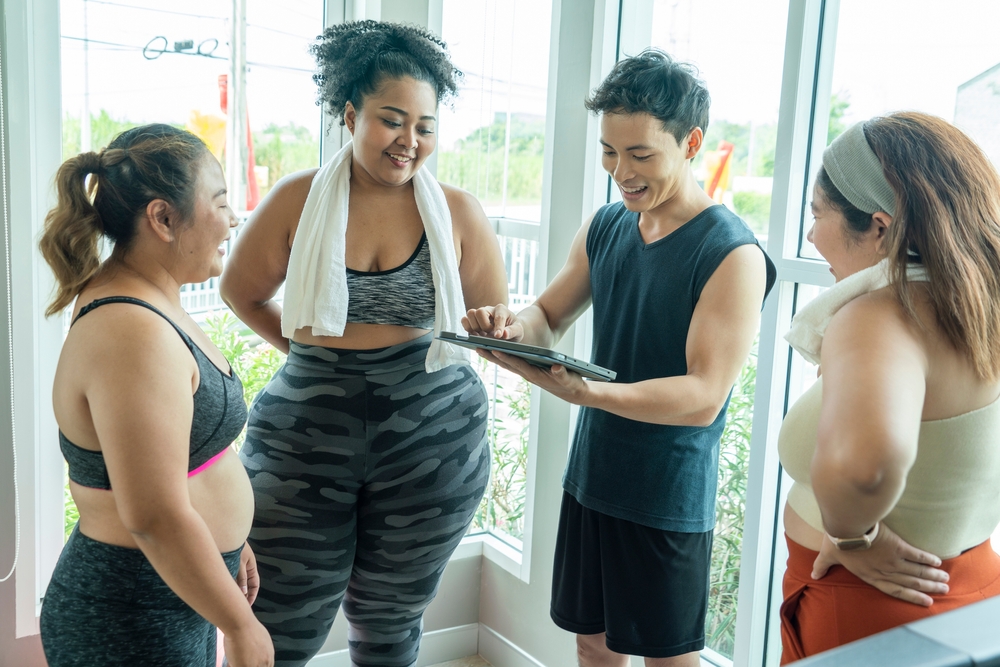With exams, papers due, and social events, many college students feel that they don’t have the time to take care of their health until they get sick, and the busy semester comes to a halt.
With busy schedules, campus dining, and plenty of opportunities to party, it’s easy to put on the freshman 15 or even more as you pursue your studies.
The good news is that even if you’re running from class to class, doing an internship, or working part-time during school, there are easy ways to ensure that you stay healthy in college.
A healthy diet, regular exercise, proper vitamins, and limited alcohol intake can make a big difference in how you feel and how well you do in school.
Check out these 4 tips for how to stay healthy while in college.
1. Eat a Healthy Diet
Embracing healthy eating habits is an important key to staying well while in college. As a college student, you can choose the foods that you put into your body.
Just like exercise and sleep, the foods that you eat will either boost your mental performance, improve your physical well-being, and support your immunity against colds and flu lurking around campus, or they can undermine your health and wrap you in a brain fog.
One of the best ways to look after your nutrition in college is to look for ways that you can incorporate a healthy diet into your everyday life.
For example, you could choose whole food like the salad bar over processed foods like pizza, burgers, chips, and fries.
Meal planning is an important way to take control of your personal nutrition. You can even make it fun by grabbing your roommate and heading to the supermarket.
Start with a budget, skip the processed foods in the center of the grocery store, and stick to the outside aisles to create meals from fresh fruits, vegetables, lean meats, eggs, and whole grains.
If you’re vegan, have dairy allergies, or have gluten intolerance, there are ways to adapt dishes to suit your dietary needs without adding a lot of processed fats, sugar, or salt.
Cook up some meals for a few days. If you don’t know how to cook, there are a ton of fun and easy recipes available online to help you get started. Learn how to portion foods correctly. The serving size should be about the size of a deck of cards.
It’s important to plan if you want to eat healthy between classes. Pack your lunch the night before class.
Make sure to grab a healthy, balanced breakfast that includes fruit, whole grain, or protein to give you the energy you need before you rush out the door for class.
We all know that coffee is the lifeblood of tired college students. Before you grab another Frappuccino, make sure to hydrate since water nourishes our cells and makes up 60% of our bodies.
It’s important not to skip breakfast since this can minimize your brain function and leave you starving and craving fast food for the rest of the day.
You may also want to throw some veggies like celery or carrots, fruit, low-fat cheese, nuts, or a granola bar in your backpack for when you get hungry.
Choosing healthy options over processed foods will make you feel cleaner, lighter, and more optimized the handle the stresses of class, work, exams, and anything else that may come your way.
It can also help you maintain fitness and boost your immune system.
2. Take a Multivitamin
Another way to stay healthy in college is to take a supplement if you think that you’re not getting proper nutrition from your diet.
While it’s important to get many vitamins, minerals, and nutrients from whole foods, there are times when your body may need some extra support.
To make sure that your body isn’t deficient in vital nutrients, consider taking a multivitamin. This can help fill in any gaps in your diet and keep your body functioning at its best potential.
When you’re looking for a multivitamin, avoid ones with added dyes or sugars. Look for ones that have a long list of important vitamins that most Americans aren’t receiving enough of in their diet.
These include Vitamin A, Vitamin C, Vitamin E, Calcium, Fiber, Potassium, and Magnesium.
Making sure that you get enough Vitamins B 12, B6, C, and D is not only important to help your brain focus, process, and retain information more effectively, but it is foundational for your overall health.
Get your multivitamin from a supplement store that carries quality products. It’s important that your multivitamin contains all the essentials.
3. Exercise Regularly

It’s easy to be a couch potato and zone out in front of the TV after a long day in class. Although rest time is important for health, more than 60% of Americans don’t get enough exercise.
If you haven’t developed an exercise habit, it’s time to get started. Moving your body, breathing deeply, sweating, and exercising your muscles are all crucial parts of exercise that make your heart healthier and improve your body’s immune system to fight off sickness.
Choose an activity that gets you moving. This can involve strength training with weights, low-impact exercises like swimming, or cardio activity such as running.
As you exercise your body, you will find your strength, flexibility, balance, and endurance grow.
Make sure to balance your exercise with healthy eating, good quality and enough sleep, and enough water intake.
A holistic understanding and practice of health will not only make you feel better and boost your immune system if you’re tired and run down, but it also helps sharpen cognitive function.
On the days you need an extra boost, consider taking a pre-workout supplement. Wrecked by Huge Supplements is the strongest pre-workout currently available.
After you get into a rhythm of healthy eating, sleep, and exercise, you’ll probably find yourself writing better papers and performing better when exam time rolls around.
While it might feel hard to fit exercise into your busy schedule, college campuses make it easier for students to balance fitness with their studies.
Most universities provide student access to gyms, intramural sports programs, and group fitness classes like spin, aquatics, or yoga.
Even if you can’t find the time to hit the gym every day, there are still ways to incorporate aerobic activity into your schedule.
Tracking your steps on an app can help you ensure that you get enough movement every day. Walking to class can get your heart rate up and your blood pumping. You can also ride your bike around campus, play a sport, or join a fitness class.
Between studies, take a break to do quick cardio body exercises like pushups, burpees, jumping jacks, and squats that don’t need any equipment.
Make sure to stretch before exercises to warm up your muscles and avoid injury. Bring a friend along to walk trails or quads at campus and make exercise more fun.
Exercise can help you feel like your best self by releasing endorphins and waking your body up. It’s a great way to start your day and an excellent healthy habit.
4. Limit Alcohol
There are a lot of social activities, dances, parties, sporting events, and other kinds of nightlife when you’re a college student.
Going out at night or on the weekends is a fun way to mix things up after hitting the books, but there’s a point when it can turn unhealthy.
Sometimes staying safe and looking after your health looks like turning that next drink, calling it a night at midnight instead of 2 am, staying hydrated, being wise about who you choose to spend time with, and listening to your intuition when a situation feels uncomfortable or unsafe.
Drinking in moderation can help you make smart decisions and stay safe, protect your bones and organs from alcohol damage, avoid miserable hangovers that clash with morning classes, and promote better health and well-being.







